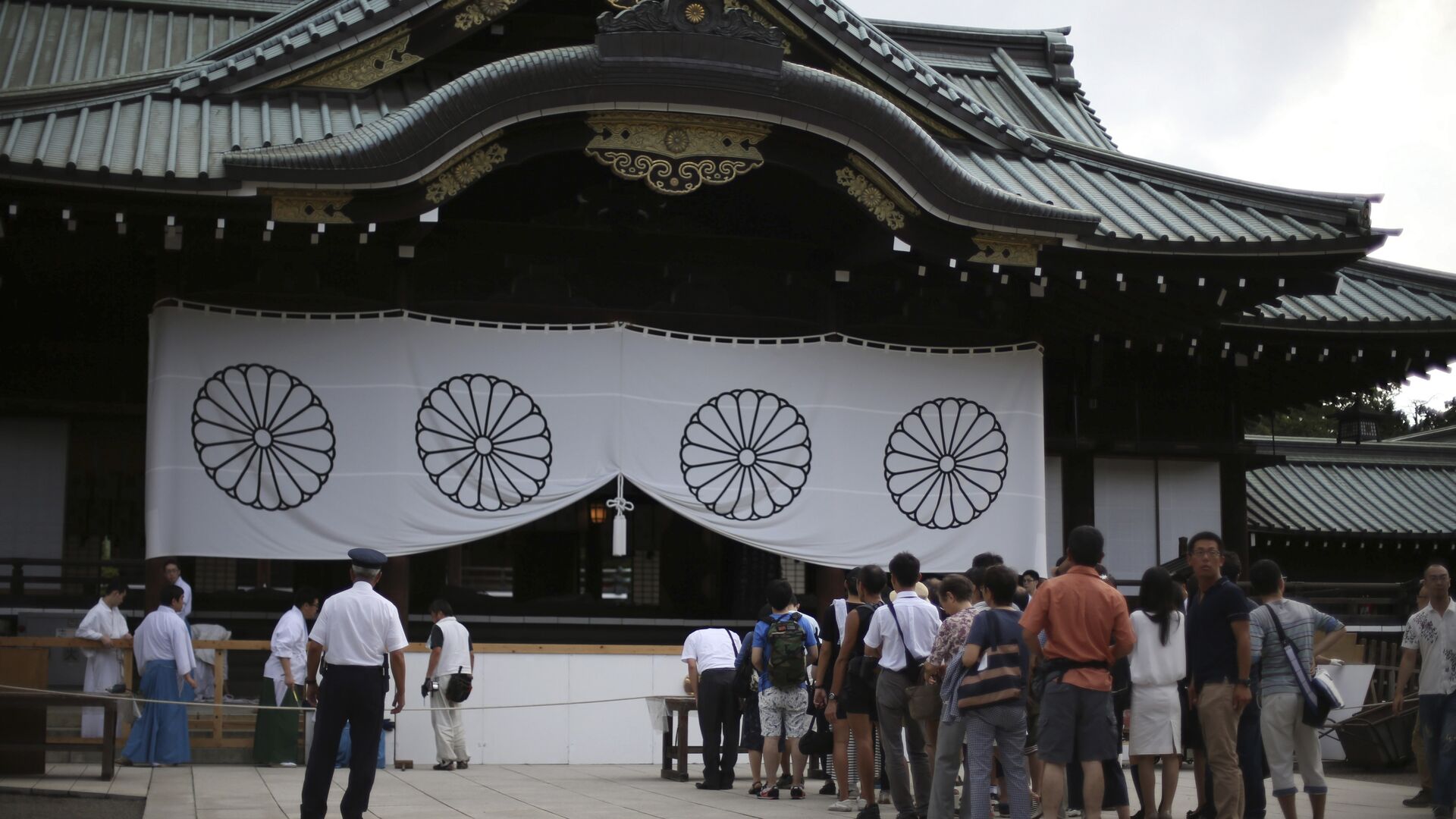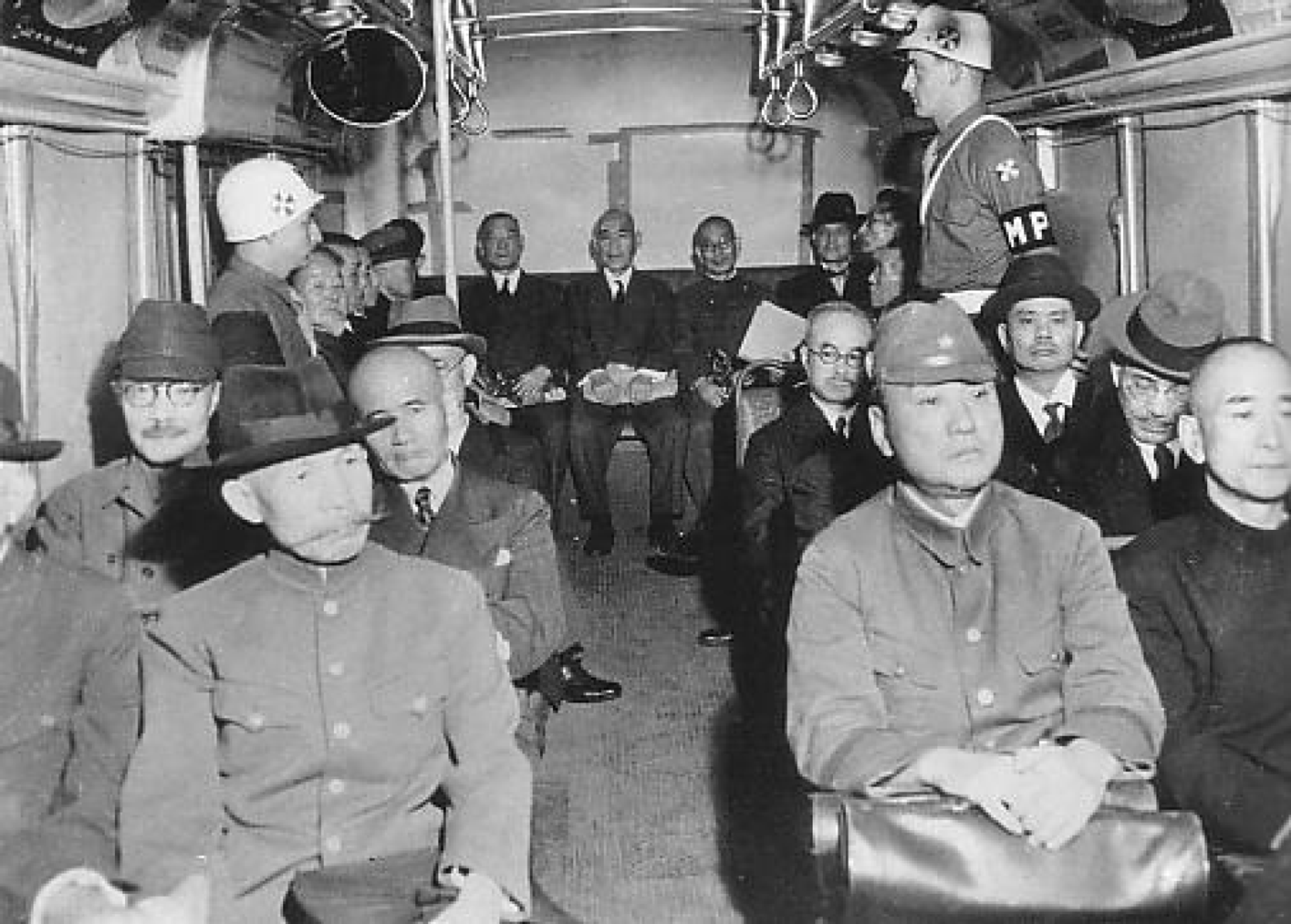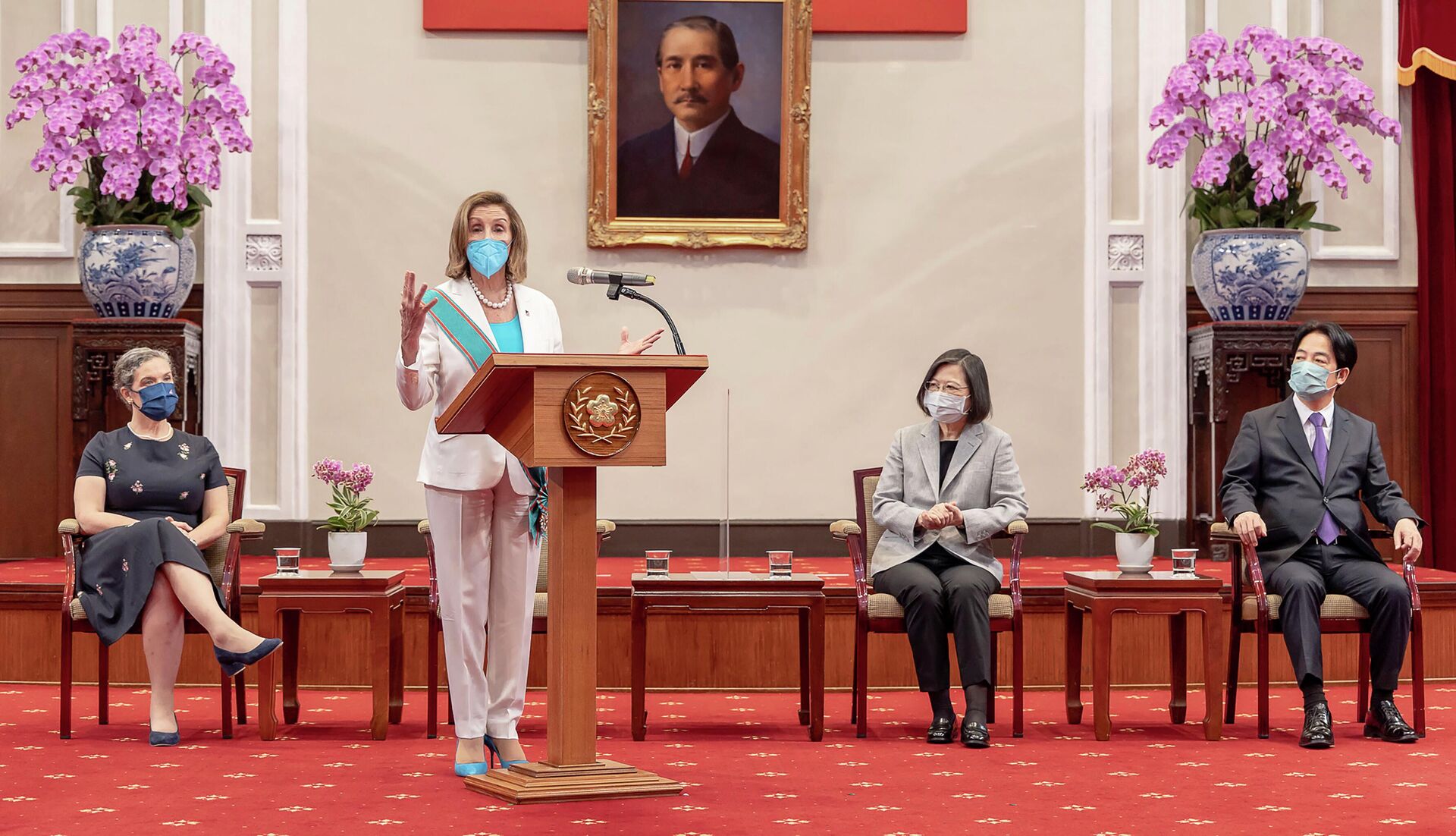Japanese Cabinet Visit to Yasukuni Shrine Infuriates China Amid US Lawmakers’ Second Taiwan Visit
18:32 GMT 15.08.2022 (Updated: 15:12 GMT 05.01.2024)

© AP Photo / Eugene Hoshiko
Subscribe
In 1895, the Japanese Empire invaded and seized Taiwan from China, turning the island into a sugar colony for 50 years, until it was returned to Beijing at the end of World War II. Just four years later, the communist Red Army triumphed in the Chinese Civil War, but the old republican government survived in Taiwan with US help.
On Monday, Japanese Prime Minister Fumio Kishida sent an offering to the Yasukuni Shrine, and several members of his cabinet paid a visit to the war memorial in Tokyo’s Chioda ward. Kishida did not attend in person, but sent his secretary with a private cash offering, while Economic Security Minister Takaichi Sanae and Reconstruction Minister Akiba Kenya traveled to the Shinto shrine to pay their respects, according to Kyodo News Agency.
The Yasukuni Shrine honors Japan’s war dead and is inscribed with the names of more than 2.4 million people who died in the service of Japan, including Taiwanese and Koreans. It is not just for soldiers, but also women and students involved in relief operations on the battlefield or who worked in factories related to the war effort. The occasion of the visit was the 77th anniversary of Japan’s surrender in 1945, which ended the Second World War.
However, among those honored are numerous war criminals, including 14 people described as “Class-A” at the International Military Tribunal for the Far East (IMTFE), also known as the Tokyo Trials, which were held by the Allied powers between 1946 and 1948. Those in this category were accused of “planning, preparation, initiation, or waging of wars of aggression,” or conspiracy to those ends, and included some of Japan’s top military and civilian leadership during the war.
At a separate event in Tokyo marking the anniversary of the end of the war, Kishida spoke out against the war in ways that his predecessors, Yoshihide Suga and Shinzo Abe, did not.
“We will never again repeat the horrors of war. I will continue to live up to this determined oath,” he said. “In a world where conflicts are still unabated, Japan is a proactive leader in peace.”
‘Defiance to the Outcome’ of WWII
The Chinese and South Korean governments were far from happy about the visits by such high-ranking Japanese officials. The Japanese Empire invaded, conquered, and ruled all of Korea and much of China for several decades, during which numerous crimes against humanity were committed, including enslavement, rape, and genocide.

The 14 Class-A war criminals in a bus during the International Military Tribunal for the Far East (IMTFE), also known as the Tokyo Trials, 1946. Those in this category were accused of “planning, preparation, initiation, or waging of wars of aggression,” or conspiracy to those ends, and included some of Japan’s top military and civilian leadership during the war.
"The government expresses deep disappointment and regret that responsible leaders of Japan's government and parliament again sent the offering or repeated their visits to the Yasukuni Shrine," South Korea's foreign ministry said in a statement, urging Tokyo to face up to history.
Just a few months ago, Seoul issued a similar denunciation following another donation to the shrine by Kishida.
Beijing’s reaction was more strongly worded, with Chinese Foreign Ministry spokesperson Wang Wenbin telling reporters that the visit “once again shows the Japanese side’s erroneous attitude toward historical issues.”
“Facing up to and deeply reflecting on history is an essential prerequisite for Japan to restore and develop normal relations with its Asian neighbors after World War II,” Wang said. “For quite some time, some Japanese politicians have kept using various means to distort and glorify its history of aggression and openly acted against important legal instruments including the Cairo Declaration of 1943, which clearly stipulates that Taiwan shall be restored to China.”
“This constitutes serious defiance to the outcome of the World Anti-fascist War and the post-war international order. This is unacceptable to anyone who loves peace and stands for justice. Those who try to turn back the wheel of history are bound to find themselves on the wrong path again. Only by sticking to the path of peaceful development can Japan find the right direction. We urge the Japanese side to draw lessons from history, make a clean break with militarism and avoid further losing the trust of its Asian neighbors and the international community,” Wang stated.
More US Lawmakers Visit Taiwan
For China, the visit is especially provocative, since it is occurring not just in the wake of a visit to Taiwan by US House Speaker Nancy Pelosi (D-CA), the third-highest-ranking member of the US government, but also during a second visit by several other US lawmakers.
The group of US lawmakers touched down in Taipei on Sunday and included US Sen. Ed Markey (D-MA) and US Reps. Alan Lowenthal (D-CA), Don Beyer (D-VA) and Aumua Amata, a nonvoting congress member who represents American Samoa. Like Pelosi, the four will meet with senior Taiwanese officials, including President Tsai Ing-wen, who leads a pro-independence faction in the Taiwanese Legislative Yuan.
Wu Qian, a spokesperson for China’s Ministry of National Defense, said the Americans’ visit “seriously violates the 'One China' principle and the provisions of the three joint China-US communiques, violates the sovereignty and territorial integrity of China, sends the wrong signal to separatist forces advocating Taiwan's independence, completely exposes the face of the United States as the destroyer of peace and stability in the Taiwan Strait.”

In this photo released by the Taiwan Presidential Office, U.S. House Speaker Nancy Pelosi speaks during a meeting with Taiwanese President President Tsai Ing-wen, second from right, in Taipei, Taiwan, Wednesday, Aug. 3, 2022
© AP Photo / Taiwan Presidential Office
The government in Taipei was once the republican government of all of China but lost control over the mainland in 1949 when the communist Red Army triumphed in the civil war. The Communist Party of China declared a new People’s Republic of China in Beijing, and nearly all of the world’s nations have switched to recognizing the PRC as the legitimate Chinese government in the decades since. However, US support has allowed the republican rump state in Taiwan to survive without reincorporating into China, even as other territories once separated from China are returned, such as Hong Kong and Macau.
After Pelosi’s visit, China launched numerous military drills surrounding Taiwan to demonstrate its ability to blockade the island; when Japan criticized the drills, Chinese Foreign Minister Wang Yi canceled a meeting with his Japanese counterpart, Yoshimasa Hayashi, and later walked out of an Association of Southeast Asian Nations (ASEAN) meeting in Phnom Penh while Yoshimasa was speaking.
“Japan is historically responsible for its wrongdoing on the Taiwan question,” Chinese Foreign Ministry spokesperson Hua Chunying said on August 4. “That’s why the Chinese people have been extremely unhappy about it.”
Tokyo has especially worried China in recent years as Abe’s militarist faction pushed to try and amend the pacifist clause of the country’s constitution, which it adopted after the war. The clause bans Japan from possessing a formal military or from engaging in offensive operations and restricts it to forces sufficient for its self-defense.

